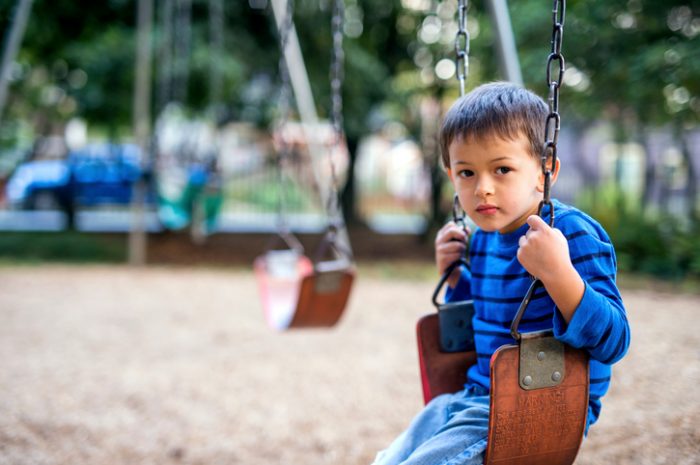Every adopted child is curious about his or her adoption story — and, hopefully, it’s one you tell often and have told since the day you brought them home. But as your child’s understanding of adoption develops, he or she may start asking more complex questions.
For many adoptive parents, the biggest one is: Why was I placed for adoption? It’s a challenging question that can come in many forms: “Why did my birth parents give me up? Why didn’t they keep me? Did they not love me?”
Knowing how to respond isn’t always easy, which is why we’ve put together a few strategies you can use when this question inevitably comes up:
 1. Use positive adoption language.
1. Use positive adoption language.
The words you use to talk about your child’s adoption story matter. It’s important to always use positive adoption language when talking to your child, and this can be an opportunity to reinforce that. If your child believes that he or she was “given up” for adoption, it can lead to feelings of shame and rejection.
If your child asks why they were “given up” or “given away,” address their phrasing. Let them know that they weren’t given up at all, and that their birth parents made an adoption plan because they loved them and felt that was the best option at the time.
2. Answer honestly.
Whenever your child has adoption questions, it’s important to answer them honestly. Don’t create a fictional story about your child’s birth parents or adoption story to avoid answering the tough questions. If your child asks a question you don’t have the answer to, it’s okay to say “I don’t know.” Giving an honest answer is always preferable to making up a false one.
Fortunately, however, it’s actually pretty easy to give an honest answer when your child asks why he or she was placed for adoption: It’s because their birth parents loved them and wanted to give them every possible opportunity in life.
You can explain that certain life circumstances led to your child’s birth parents making an adoption plan. The details you give your child will depend on their age and level of understanding (see number three), but for young children, it’s best to keep it simple. You might say something like, “Your birth parents were dealing with grown-up issues and weren’t ready to take care of a baby. But, they loved you very much and wanted you to have a happy life, so they made a plan to place you with our family.”
3. Keep it age-appropriate.
Explaining the circumstances that led to your child’s adoption might be difficult if certain issues are involved, such as addiction, homelessness or an unhealthy or even abusive relationship between the birth parents. But your child has the right to know his or her full story, difficult details and all. So, when should you start revealing the more challenging aspects of your child’s adoption story?
The way you talk about adoption with your child will evolve as he or she gets older. Every child matures at a different pace, so it’s important to gauge your child’s individual understanding and emotional readiness before explaining the more challenging parts of his or her adoption. Your adoption specialist or a professional counselor can help you make a plan for explaining these difficult details when the time is right.
4. Talk to their birth family if possible.
If you have an open adoption, and if you think it is appropriate in your situation, consider reaching out to your child’s birth mother to ask if she would be comfortable talking to your child about her adoption decision herself.
She may have details that you don’t have, and for many children, it can be incredibly helpful to get the answers they’re looking for directly from the source. She can reassure your child that her adoption decision was a difficult one made out of unconditional love.
5. Be reassuring.
Above all else, it’s important to reassure your child that he or she is loved unconditionally — both by you and by his or her birth parents. Treat adoption as something positive and special, and your child will pick up on your attitude. Being open, honest and optimistic about the adoption decision your child’s birth parents made will in turn encourage your child to feel more confident and proud of his or her adoption story.


